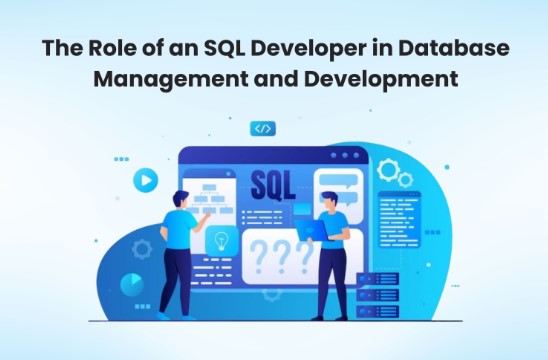An SQL developer’s work is crucial in determining the effectiveness and features of database construction and maintenance in information technology. With companies depending more and more on data to make decisions, there is a growing need for qualified developers. Knowing the importance of SQL Courses and the many responsibilities of an SQL Developer is crucial, regardless of whether you are an experienced tech enthusiast looking to expand your skill set or an IT professional pursuing a career in database administration.
In this blog, we’ll examine how these experts serve as database architects, query maestros, performance experts, defenders of data integrity, constantly evolving technophiles, automation pioneers, and security advocates.
Table of Contents
The Foundation with SQL Courses
Before diving into what it takes to be an SQL developer, it is essential to recognise the fundamental function SQL courses play in developing these professionals. The language used by databases is called Structured Query Language, or SQL. SQL training is the foundation for anybody hoping to become a skilled developer. These courses provide students with deep insights into database design, querying, and administration, giving them the tools they need to traverse the complex world of data.
SQL developers are at the forefront of innovation, spearheading the development of database systems as technology advances. SQL courses serve as entry points, providing theoretical and practical expertise to ensure aspiring developers are knowledgeable about the day-to-day operations of maintaining and modifying databases.
Understanding the SQL Developer’s Role
There is more to a developer than simply coding. They are database designers, data architects, and inefficiency troubleshooters. All database development life cycle phases are covered by their duties, from conception and design to implementation and upkeep. Let’s examine each of the facets of a developer’s job.
Database Design Maestro
An SQL developer’s primary duty is to create a solid database architecture. This includes designing the database’s structure and specifying its tables, relationships, and restrictions. A competent developer makes sure the database is a well-organised system that makes it easy to retrieve and manipulate data, not merely a storehouse.
Querying Virtuoso
SQL developers are the masters of queries. They are skilled at creating intricate SQL queries that draw insightful conclusions from large datasets. SQL developers can turn raw data into meaningful narratives by filtering, merging, or aggregating information, enabling organisations to make well-informed choices.
Performance Guru
Performance in database administration is critical. Database performance is continuously monitored and improved by a developer. Ensuring the database runs as efficiently as possible entails optimising queries, indexing data for effective retrieval, and putting best practices into practice.
Guardian of Data Integrity
Within the database industry, data integrity is non-negotiable. By putting restrictions in place, developers guarantee data integrity by ensuring the data is correct, consistent, and trustworthy. This meticulous attention to detail protects the data’s integrity and inspires trust in users and stakeholders.
The Ever-Adapting Technophile
An SQL developer is a lifelong student of technology. They keep up with the most recent developments in database technology, tools, and techniques. This flexibility is a crucial quality that enables developers to use state-of-the-art technologies that improve the functionality and effectiveness of database systems.
Innovator of Automation
A developer becomes a pioneer in automation, going beyond manual duties. They improve system efficiency by streamlining processes using tools and scripts. Automation is a paradigm leap in database administration, not merely a way to save time. SQL developers plan updates, backups, and maintenance to guarantee consistency and save time for important initiatives. This innovation improves database scalability as firms expand. The automated abilities of developers become defining, coordinating efficiency. By embracing automation, they design a future in which data management in the rapidly changing digital ecosystem becomes more than a need.
Champion of Security
Within database administration, an SQL developer becomes a security champion. Protecting data integrity and confidentiality is crucial in light of the growing danger of cyberattacks. Robust security mechanisms, such as encryption and access restrictions, are put in place by developers to protect private data from unwanted access. They constantly adjust and strengthen the database fortress to be attentive against changing cybersecurity threats. Maintaining data integrity requires more than just structural considerations; it also entails building an impenetrable barrier against online threats.
Conclusion
To sum up, the job of an SQL developer is essential to the smooth operation of contemporary companies that rely significantly on data. Through SQL training and Programming & DevOps Courses, aspiring developers set out to acquire the fundamental knowledge and abilities required to succeed in this fast-paced industry. A versatile professional who can mold the data-driven future, a developer can do everything from creating databases to improving performance.
There is always more to learn, uncover, and use regarding technology, regardless of whether you are considering becoming a developer or already well-versed in the industry. Accept the obstacles, maintain your curiosity, and use the language of databases as a blank canvas on which to create digital works of art.

